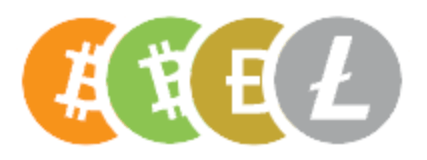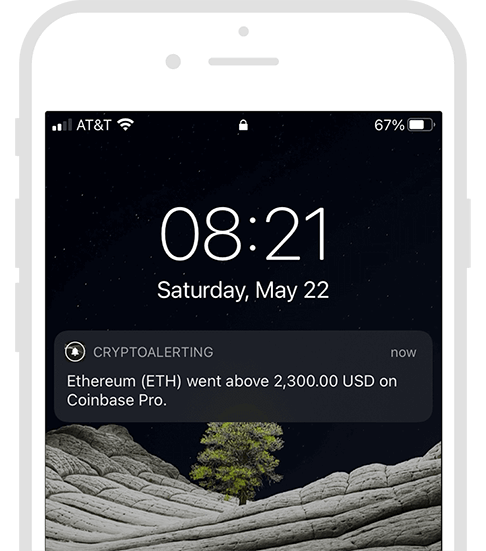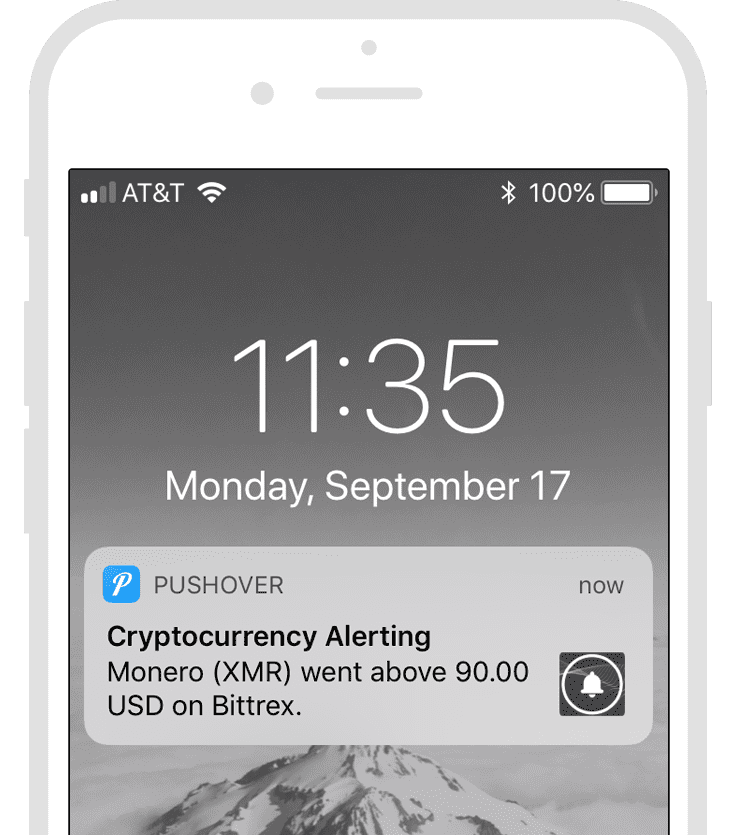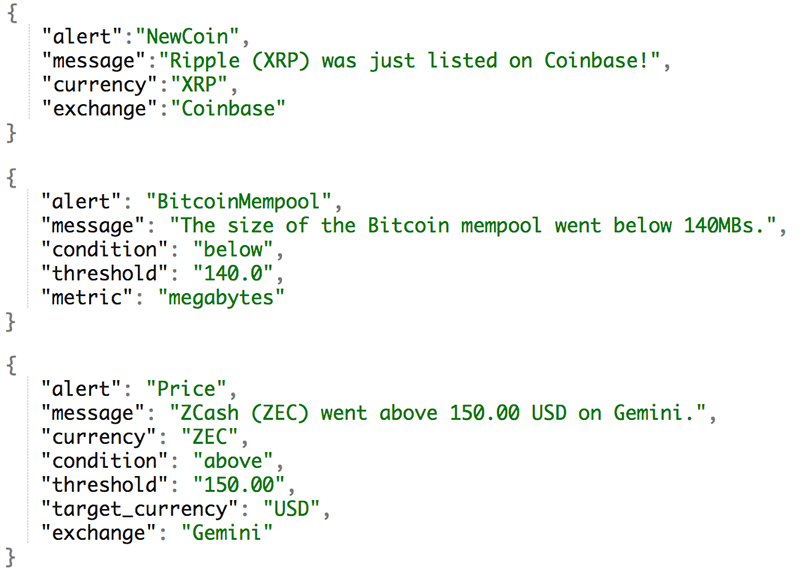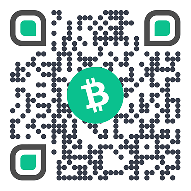Altcoin Explainer
Beginner-friendly summaries of some noteworthy cryptocurrencies.
Please note: These descriptions go into very little technical detail. They do not indicate how far along a given project is, nor the challenges they realistically face. Please do additional research before forming an opinion about any of these altcoins.
Please note: These descriptions go into very little technical detail. They do not indicate how far along a given project is, nor the challenges they realistically face. Please do additional research before forming an opinion about any of these altcoins.
 0x (ZRX)
0x (ZRX)
0x is an open, permissionless protocol allowing for ERC-20 tokens to be traded on the Ethereum blockchain. It offers a cheaper and faster solution than possible on the Ethereum blockchain directly, and is often used to help build DEXs. Users place their orders off-chain, which removes the need to pay fees. Only the actual transfers of value occur on-chain. Relayers broadcast all the off-chain orders of the 0x network to the rest of the network to match buyers with sellers. 0x is already being used by a number of blockchain projects. Aave (AAVE)
Aave (AAVE)
Aave (AAVE) is the native cryptocurrency of the Aave platform: an Ethereum-based DeFi lending platform where users can borrow a range of cryptocurrencies, as well as lend assets in exchange for interest payments, all without needing a middleman. The Aave protocol is governed by AAVE token holders. Algorand (ALGO)
Algorand (ALGO)
Algorand (ALGO) is both a digital currency and an open source blockchain platform. Their platform is designed for quick transaction processing, and can host other cryptocurrencies and blockchain-based projects, making it a direct competitor to Ethereum. ALGO, the platform's native currency, is used to secure the Algorand blockchain and pay processing fees for Algorand-based transactions. The total supply of ALGO is capped at 10 billion coins, with about 7 billion ALGO already circulating. Ark (ARK)
Ark (ARK)
Ark aims to create an ecosystem of linked blockchains using a technology called SmartBridge -- which allows existing blockchains to interface with one another. This altcoin uses a Delegated Proof of Stake (DPoS) consensus system originally developed by Bitshares. It features 8 second block times, making transactions nearly instantaneous. Several founders are the key developers behind Lisk. Augur (REP)
Augur (REP)
Augur is a decentralized prediction market built on top of Ethereum. A prediction market allows for forecasting the outcomes of arbitrary future events (such as who will win an election, or if an earthquake will hit a given city, etc). Reputation is an important part of Augur's success. By having a mechanism that incentivizes honest reporting by coin holders, Augur is able to operate with significantly lower fees than a centralized betting platform. Vitalik Buterin is an advisor. Avalanche (AVAX)
Avalanche (AVAX)
AVAX is the native token of the Avalanche blockchain, which uses smart contracts to support a variety of blockchain projects. Avalanche is a competitor to Ethereum that prioritizes scalability and transaction processing speed. The Avalanche blockchain can provide near-instant transaction speeds. AVAX is used to pay transaction processing fees, secure the Avalanche network, and act as a basic accounting unit for blockchains in the Avalanche network. Axie Infinity (AXS)
Axie Infinity (AXS)
Axie Infinity Shards (AXS) are an ERC-20 governance token for the Axie Universe. Axie Infinity is an online game universe revolving around Pokémon-esque creatures known as Axies. Players can collect Axies as virtual pets with aspirations to battle, breed, collect, raise, and build kingdoms for their Axies. AXS is the native currency to the game, and holders can claim rewards if they stake tokens, play the game, and participate in key governance votes. Basic Attention Token (BAT)
Basic Attention Token (BAT)
BAT aims to be a decentralized and transparent digital ad exchange. Rather than paying middleman companies like Facebook and Google to run ads, that money can be paid directly from advertisers to users in BAT tokens. Users can then turn around and use that BAT to pay their favorite content providers. Users retain ownership of their browsing data and allow for machine learning algorithms to match that data with relevant ads, without having it tied to your identity. Notably, BAT raised their ICO in under 30 seconds. Brendan Eich, the creator of JavaScript and co-founder of Mozilla and Firefox, is the primary figurehead. It already works with the privacy-focused Brave browser. Binance Coin (BNB)
Binance Coin (BNB)
BNB is a cryptocurrency that is used primarily to pay transaction and trading fees on the Binance exchange, but it can now be used for other types of transactions as well. It was originally based on the Ethereum network but is now the native currency of Binance's own blockchain, the Binance chain. Every quarter, Binance uses one-fifth of its profits to repurchase and permanently destroy, or "burn" BNB held in its treasury. Bitcoin Cash (BCH)
Bitcoin Cash (BCH)
A controversial hard fork of Bitcoin created in August 2017 as a reaction to SegWit being adopted. Bitcoin Cash attempts to solve scalability issues using larger block sizes in order to reduce transaction fees. It is derogatorily referred to as "bcash". Blocknet (BLOCK)
Blocknet (BLOCK)
Blocknet aims to be the "Internet of Blockchains". It claims to allow the features of one blockchain to function as a service accessible to users of every other cryptocurrency. Blocknet is a general-purpose infrastructure for inter-blockchain functionality, similar to Ark. Blockstack (STX)
Blockstack (STX)
Blockstack is building a decentralized internet where you can own your data and maintain your privacy. They are a platform to help enable developers to build decentralized applications (dapps) through the Blockstack Browser. Cardano (ADA)
Cardano (ADA)
Cardano aims to solve a number of issues that Ethereum reportedly suffers from. It has a multi-tiered architecture, where one layer is focused on transactions and accounts and the other layer is for smart contracts. This allows for easier upgrades and enhanced flexibility. It plans to feature on-chain governance, including a treasury where the community can then vote on how to fund the competition. It uses a Proof of Stake system called Ouroboros. Chainlink (LINK)
Chainlink (LINK)
Chainlink is offering a solution to the Oracle problem: It allows smart contracts to be connected to real world data & APIs. It essentially bridges the gap between on-chain information and off-chain information. It was founded by Sergey Nazarov, and has already garnered support from Google, IBM and other high profile institutions. Chia (XCH)
Chia (XCH)
Chia Network (XCH) is a layer 1 blockchain that aims to be a sustainable approach to blockchain technology with a smart transaction platform. It uses its own custom-designed programming language called Chialisp and a novel consensus mechanism called proof-of-space-and-time (PoST). The combination of these allows the blockchain to use less energy without compromising network security. Chia Network's blockchain endeavors to be a global open-sourced, decentralized network that operates a payment settlement system using Chia (XCH), their native cryptocurrency. Chiliz (CHZ)
Chiliz (CHZ)
The Chiliz token (CHZ) is the native cryptocurrency of the Chiliz network, which allows users to purchase Fan Tokens on Socios.com. This provides the option to buy tokenized voting rights in their favorite football and e-sports teams. CHZ initially launched as an Ethereum-based ERC-20 token, but also began offering Binance Smart Chain BEP-2 versions of the token following a strategic partnership with Binance. Civic (CVC)
Civic (CVC)
Civic is a decentralized identity ecosystem, where a user or company can request to verify the identity of another in a safe and cost-effective way that isn't tied directly to their personal information. For example, a user can use Civic to verify with a company that they are a US citizen without providing said documents to that company directly. Vinny Lingham is the CEO. Compound (COMP)
Compound (COMP)
Compound is a decentralized, blockchain-based protocol that allows you to lend and borrow crypto. Lenders earn interest on the assets they deposit and have a say in its governance with its native COMP token. Cosmos (ATOM)
Cosmos (ATOM)
Cosmos is a proof-of-stake blockchain, powered by its native ATOM cryptocurrency. The Cosmos Hub is the first of the interconnected blockchains that will eventually comprise the Cosmos Network. Cosmos aims to create a network of crypto networks united by open-source tools for streamlining transactions between them. Cosmos's goal is to foster an ecosystem of networks that can share data and tokens programmatically, with no central party facilitating the activity. Cronos (CRO)
Cronos (CRO)
Cronos is the official coin of Crypto.com, a cryptocurrency exchange that supports trading, investing, staking, wallets, NFTs, and more. Crypto.com supports over 250 different currencies and offers discounts for those who hold a significant stake in CRO. It was originally named after the exchange, but later rebranded to Cronos. Curve (CRV)
Curve (CRV)
Curve DAO is an Ethereum token that powers Curve.fi, a decentralized exchange and automated market maker protocol. The protocol is designed to make it easy to swap between similar ERC-20 tokens, especially stablecoins and Ethereum-based Bitcoin tokens. The CRV token can be bought or earned through yield farming — when you deposit assets into a liquidity pool and earn tokens as a reward. DASH (formerly XCoin and Darkcoin) (DASH)
DASH (formerly XCoin and Darkcoin) (DASH)
Short for "Digital Cash", this project aims to be a user-friendly payment system. It offers instant transactions (InstantSend), private transactions (PrivateSend) and operates a self-governing and self-funding model that enables the Dash network to pay individuals and businesses to perform work that adds value to the network. Dash's decentralized governance and budgeting system makes it a decentralized autonomous organization (DAO). Dash uses a Proof of Stake consensus mechanism and utilizes a two-tier network. Certain network functions, such as creating new blocks, are handled by the miners. The second tier of the Dash network consists of "masternodes" which perform PrivateSend, InstantSend, and governance functions. Decentraland (MANA)
Decentraland (MANA)
Decentraland is a virtual reality platform powered by the Ethereum blockchain. Users can create, experience, and monetize content and applications within a virtual world that they themselves own. Decred (DCR)
Decred (DCR)
Short for "Decentralized Credit", Decred is a digital currency that uses a community-based governance model to determine the future of its blockchain protocol. The people who own Decred have a say in how it evolves. It uses a hybrid Proof of Work and Proof of Stake mining system to decentralize the decision-making process. Includes decisions such as whether or not the development team should work on a specific feature, turn on/off existing features, and how to best spend development funds. DFINITY (DFN)
DFINITY (DFN)
Dfinity aims to reduce the costs of cloud services by creating a decentralized "internet computer". District0x (DNT)
District0x (DNT)
District0x is a network of decentralized markets and communities. Anyone can create, operate, and govern their own district. District0x is powered by Ethereum, Aragon, and IPFS. Dogecoin (DOGE)
Dogecoin (DOGE)
Originally created as a joke referencing the Shiba Inu dog meme, Dogecoin has gone on to reach heights of a 1 billion dollar market cap. It has become a popular coin to tip people over the internet. Dogecoin is a fork of Litecoin. Dogelon Mars (ELON)
Dogelon Mars (ELON)
ELON is a doge-themed token project aiming to replicate the success of Dogecoin (DOGE) while referencing Elon Musk's vision to colonize Mars. ELON claims to be the first interplanetary currency. It's an ERC-20 token built on the Ethereum blockchain. The founders of Dogelon Mars locked 50% of all the ELON liquidity in a Uniswap liquidity pool. Elrond (EGLD)
Elrond (EGLD)
The Elrond eGold (EGLD) token is native to the Elrond Network and is used for everything from staking, governance, and transactions to smart contracts and validator rewards. The Elrond blockchain focuses on providing easy integration solutions, scalability, high speeds, and low transaction costs. EOS (EOS)
EOS (EOS)
A smart contract platform comparable to Ethereum, notable for its year-long ICO. It offers significantly higher throughput (transactions per second), but only achieves this by being far less decentralized. Ethereum (ETH)
Ethereum (ETH)
Ethereum is a smart contract platform which allows decentralized applications to be written on the blockchain using a scripting language. In addition to simple wallet-to-wallet transactions, programs known as "contracts" can also send and receive funds based on programmable logic. This can be used to achieve many purposes, ranging from the creation of new tokens (ICOs), games like CryptoKitties, and replacing trusted third parties found in traditional finance. Ethereum was first proposed in a whitepaper by Vitalik Buterin in late 2013.Our platform supports free ethereum price alerts, percentage price alerts and ETH wallet monitoring.

 Dai (DAI)
Dai (DAI) Ethereum Classic (ETC)
Ethereum Classic (ETC) Ethereum Name Service (ENS)
Ethereum Name Service (ENS) Fantom (FTM)
Fantom (FTM) Filecoin (FIL)
Filecoin (FIL) FTX Token (FTT)
FTX Token (FTT) Gala (GALA)
Gala (GALA) Golem (GNT)
Golem (GNT) The Graph (GRT)
The Graph (GRT) Hedera Hashgraph (HBAR)
Hedera Hashgraph (HBAR) Helium (HNT)
Helium (HNT) HEX (HEX)
HEX (HEX) ICON (ICX)
ICON (ICX) IOTA (MIOTA)
IOTA (MIOTA) Klaytn (KLAY)
Klaytn (KLAY) Komodo (KMD)
Komodo (KMD) Libra (LIBRA)
Libra (LIBRA) Lisk (LSK)
Lisk (LSK) Litecoin (LTC)
Litecoin (LTC) Loom Network (LOOM)
Loom Network (LOOM) Monero (XMR)
Monero (XMR) NEAR Protocol (NEAR)
NEAR Protocol (NEAR) NEM (XEM)
NEM (XEM) NEO (formerly Antshares) (NEO)
NEO (formerly Antshares) (NEO) OmiseGo (OMG)
OmiseGo (OMG) Optimism (OP)
Optimism (OP) Orchid (OXT)
Orchid (OXT) PancakeSwap (CAKE)
PancakeSwap (CAKE) Polkadot (DOT)
Polkadot (DOT) Polygon (MATIC)
Polygon (MATIC) Raydium (RAY)
Raydium (RAY) REN (REN)
REN (REN) Ripple (XRP)
Ripple (XRP) The Sandbox (SAND)
The Sandbox (SAND) Shiba Inu (SHIB)
Shiba Inu (SHIB) Siacoin (SC)
Siacoin (SC) Solana (SOL)
Solana (SOL) Steem (STEEM)
Steem (STEEM) SushiSwap (SUSHI)
SushiSwap (SUSHI) Stellar (XLM)
Stellar (XLM) USD Coin (USDC)
USD Coin (USDC) Tether (USDT)
Tether (USDT) Tezos (XTZ)
Tezos (XTZ) Theta Network (THETA)
Theta Network (THETA) THORChain (RUNE)
THORChain (RUNE) TRON (TRX)
TRON (TRX) Uniswap (UNI)
Uniswap (UNI) Waltonchain (WTC)
Waltonchain (WTC) Wrapped Bitcoin (WBTC)
Wrapped Bitcoin (WBTC) yearn.finance (YFI)
yearn.finance (YFI) Zcash (formerly ZeroCoin) (ZEC)
Zcash (formerly ZeroCoin) (ZEC) Zilliqa (ZIL)
Zilliqa (ZIL)
